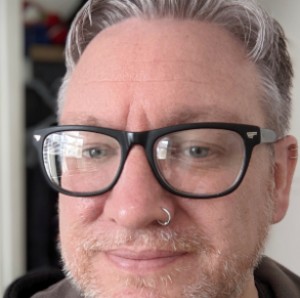About
Leighton Evans is Associate Professor in Media Theory at Swansea University, and is the co-lead for Media and Communications. Leighton was previously Senior Lecturer in Digital Media Cultures at the University of Brighton and a postdoctoral research fellow on the ERC-funded Programmable City project at Maynooth University, Ireland. Leighton received his PhD from Swansea University in 2013.
In 2023, Leighton was the recipient of the Dillwyn Medal in Social Sciences, Business and Education from the Learned Society of Wales in recognition of his research. In the same year, Leighton was the recipient of a Swansea University Academy of Teaching and Learning (SALT) Excellence in Teaching Award, nominated by his students.
Leighton’s research background is in the Philosophy of Technology and new media, and he has published work on social media, location-based social networking, phenomenology, webnography, management systems, smart logistics and smart cities. Leighton’s primary research interests lie in the transformation of natural phenomena into data through digital technologies, and how this transformation leads to a normalisation of the digital in everyday life. His work draws on philosophical theory from the Continental school, in particular the works of Martin Heidegger, Peter Sloterdijk, Herbert Marcuse and Bernard Stiegler to work through the emergent issues of the co-presence of digital technology in everyday life. Leighton’s current research work is on 'virtual worldliness', assessing how users make sense of environments in augmented and virtual reality through their engagement with virtual objects, things and other users. This project was initially funded by a £10,000 grant through the Rising Stars initiative at the University of Brighton. Currently, Leighton Evans is working with Michal Rzeszewski and Jacek Kotus from Adam Mickiewicz University, Poznan, Poland on the ‘Augmented City’ project with £120,000 funding from the National Science Institute, Poland.
Leighton welcomes applications from doctoral candidates who wish to pursue research in the fields of digital media, social media, virtual and augmented realities, media theory and computational culture.


